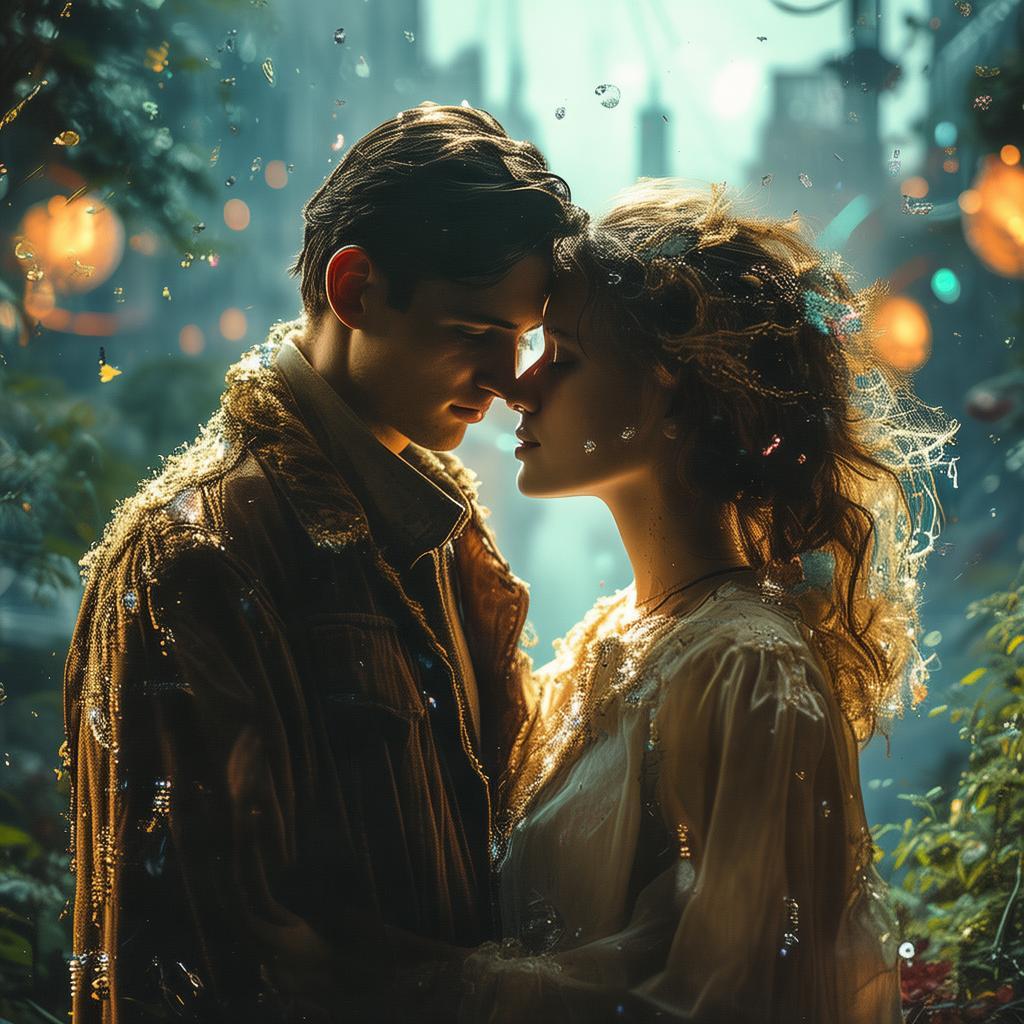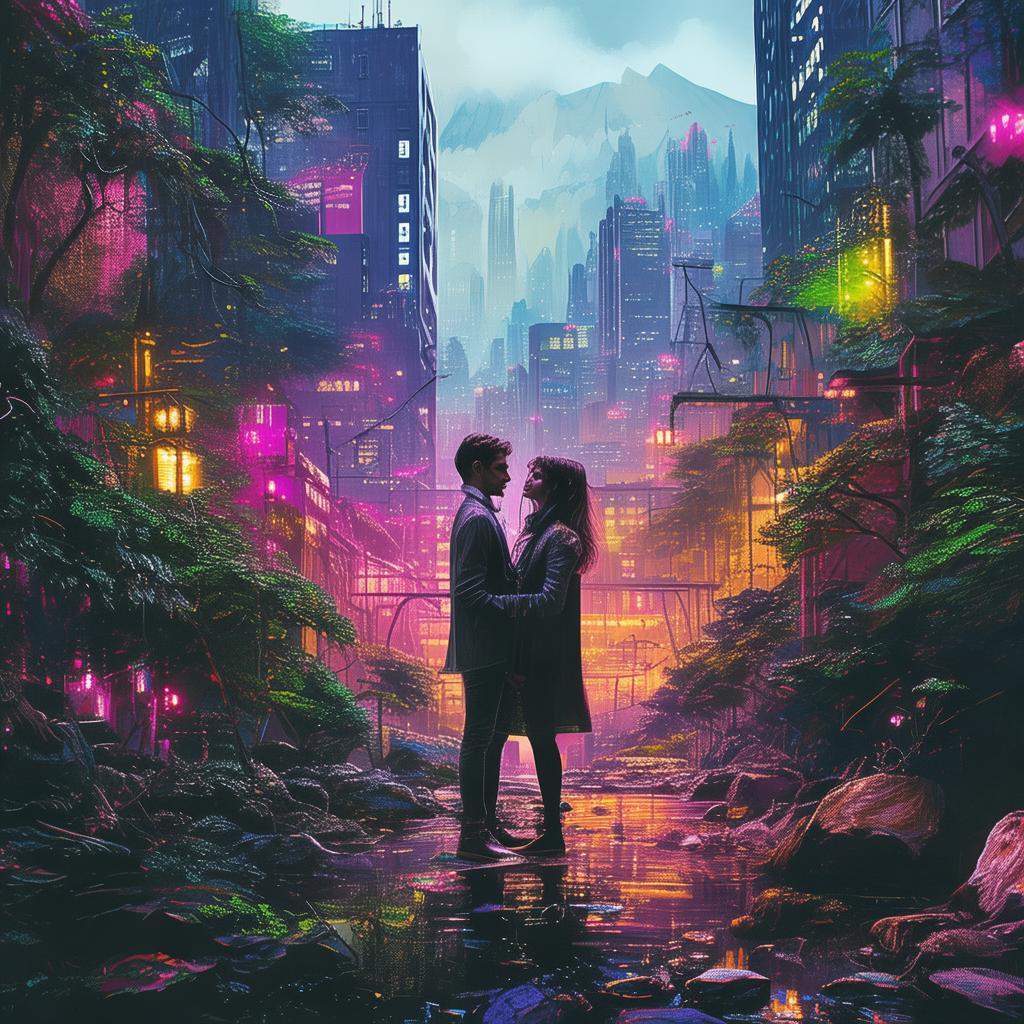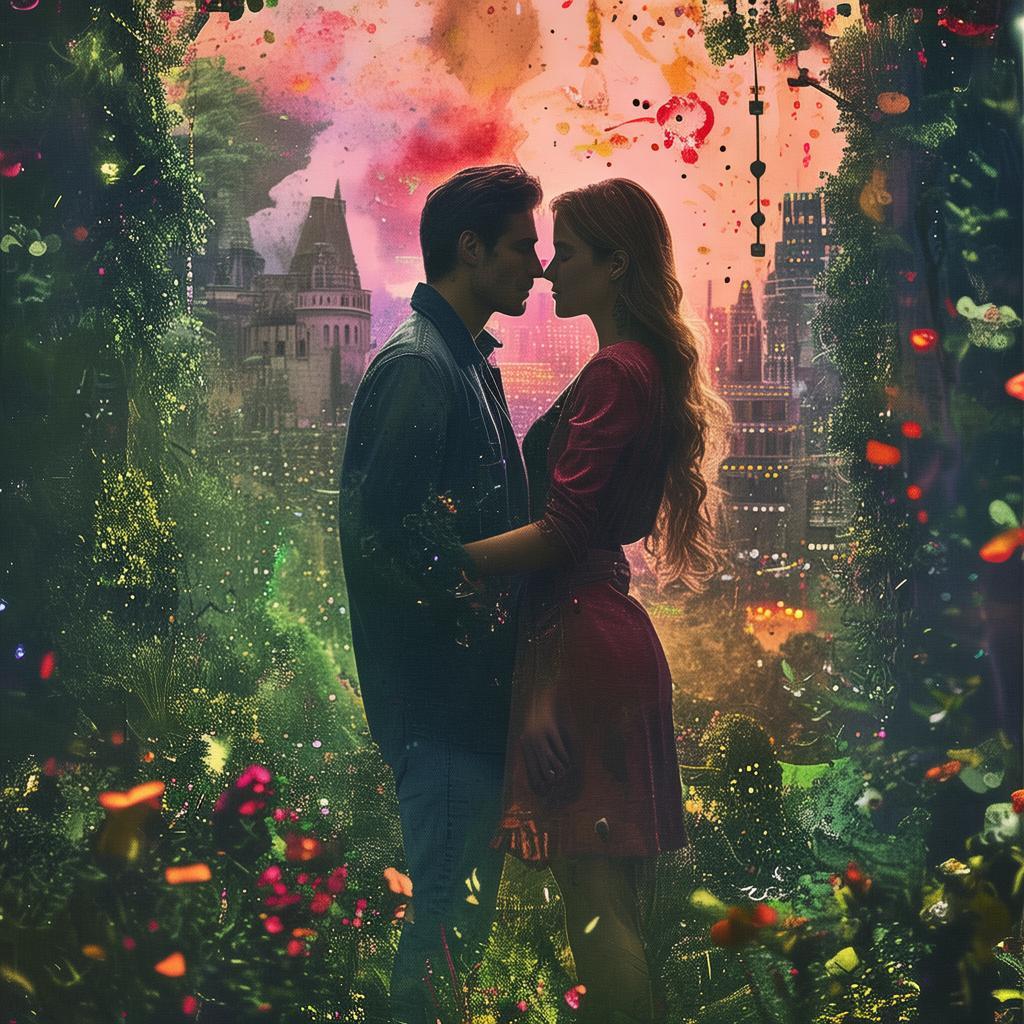Twilight of the Lyrical Hearts
The bustling city of Mumbai shone with the brilliance of the evening sky. The air was filled with the sounds of Hindi music, the scent of street food, and the constant hum of life. Amidst the cacophony of city life, there stood a small, dimly lit music store, its windows fogged with the warmth of countless melodies that had once resonated within its walls.
In the corner of the store, a young man named Rohan, with a face etched with the lines of dedication and passion, toiled away. He was a luthier, crafting violins with the same love and care as if each instrument held the soul of the composer. His hands, deft and skilled, moved with a grace that belied their years of experience. But Rohan was no ordinary craftsman; he was the son of a revered composer, and he carried the weight of a musical legacy that seemed too heavy for his young shoulders.
In the heart of the city, on a different street corner, stood a vibrant bazaar. The air was thick with the chatter of the locals, the clink of bangles, and the smell of spices. It was here that the young woman, Aisha, worked as a vendor. Her laughter was as bright as the sun, her smile as warm as the tea she sold, and her spirit was as vibrant as the colorful fabrics that adorned her stall.

One fateful evening, as the sun dipped below the horizon, casting a golden glow over the city, Rohan stumbled upon Aisha’s stall. His heart, caught by the sound of a hauntingly beautiful melody, stopped for a moment before it raced to its new destination. Aisha, with her soulful eyes and melodic voice, sang a song that spoke of love that knows no bounds. It was as if her voice had found a chord within Rohan that had been waiting for a melody to play.
As days turned into weeks, their paths crossed repeatedly, each encounter more intense than the last. They shared stories of their dreams, their fears, their hopes, and their loves. They shared songs, each one a testament to their shared passion for music and for each other. But as their bond deepened, so did the realization that their love was a union that could not be allowed to exist. Rohan was the son of a respected Hindu family, while Aisha was the daughter of a Muslim family; in Mumbai, a city that was often at the forefront of cultural and religious tensions, their love was a flame that dared to burn against the wind of societal norms.
One evening, as the moon hung full in the sky, casting its silver glow over the city, Rohan approached Aisha’s stall. His heart was heavy with the burden of his reality, and his words were as gentle as the wind that whispered through the leaves.
“Dosti hai zindagi mein, pyar hai dosti ke upar,” he said, his voice barely above a whisper, “Friendship is life, love is above friendship. But this is Mumbai, and our love is a bridge too far.”
Aisha’s eyes brimmed with tears, but her voice was resolute. “We have chosen our paths, but love has chosen us. Can we not build a bridge, a musical bridge, that transcends our differences?”
Rohan’s eyes met hers, and in that moment, he knew that he could not turn away from the love that had found him. They had to fight, to defy the odds, to prove that love was a force that could unite even the most divided hearts.
The following weeks were a whirlwind of musical collaboration. Rohan and Aisha began to craft a musical duet that would become the voice of their love. They wrote lyrics that spoke of unity, of dreams, of love that knew no bounds. They performed in parks, in alleys, in the small venues of Mumbai, their voices intertwining, their melodies blending, until they became one.
But as their music spread like wildfire, so too did the whispers and murmurs of disapproval. The families of both young lovers were against their union, and the media was quick to pounce on the story, turning it into a spectacle of cultural and religious tension.
The climax of their struggle came when they were invited to perform at a grand festival in Mumbai. The stage was set, the audience was expectant, and their hearts were racing. Rohan took the microphone, and as the music began to play, he turned to Aisha.
“Tumhe pyar se mila hai, aur main usse pyar se mila hoon,” he declared, “I have found love, and love has found me. Today, we are not just performers; we are the bridge between our worlds. We are Bollywood lovers, and we will not let our love be divided.”
The audience, caught in the emotion of the moment, erupted into cheers. Aisha stepped forward, her voice rising above the crowd, “Aur main bhi aise hi sochti hoon, humari pyar ki jhukti hain kuchh bhi,” she added, “And I feel the same, our love will overcome everything.”
As the final note echoed through the air, the crowd was on its feet, cheering, clapping, and crying. The bridge between the worlds of Rohan and Aisha had been built, and with it, a new chapter in the story of Mumbai.
The ending of their tale was not without its trials. The families of both young lovers were deeply hurt and their love faced many obstacles. However, the strength of their bond, their music, and their message of unity transcended the divides of religion and culture.
In the end, it was the music that brought them together, not just as lovers, but as icons of unity. Rohan and Aisha’s duet became an anthem for those who believed in love and its power to bring people together. Their story, a musical tale of unity, became a part of Mumbai’s rich tapestry of love and struggle, a testament to the enduring power of love against all odds.
✨ Original Statement ✨
All articles published on this website (including but not limited to text, images, videos, and other content) are original or authorized for reposting and are protected by relevant laws. Without the explicit written permission of this website, no individual or organization may copy, modify, repost, or use the content for commercial purposes.
If you need to quote or cooperate, please contact this site for authorization. We reserve the right to pursue legal responsibility for any unauthorized use.
Hereby declared.









